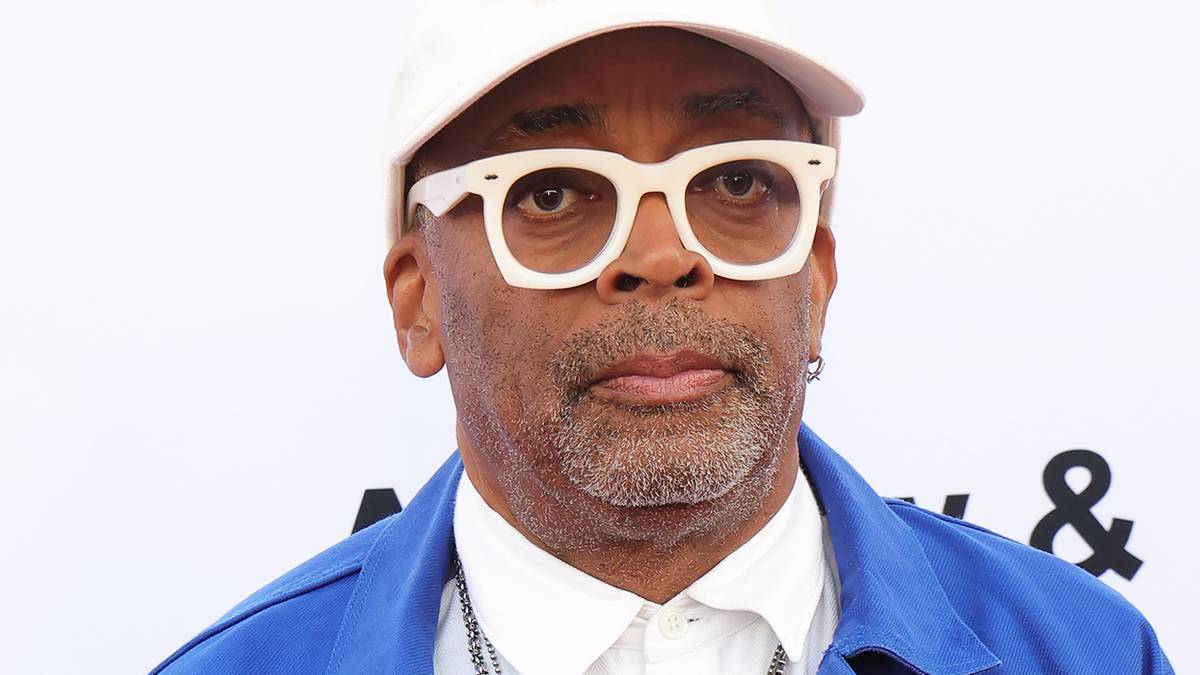Spike Lee's Hidden Gem: Director Calls for Recognition of Overlooked 'Game of Thrones' Collaboration

Spike Lee, a prolific and impactful director, boasts a filmography that is one of the most distinguished in modern cinema, featuring classics like Do the Right Thing and Malcolm X. Despite the breadth of his acclaimed work, Lee himself believes certain films are unfairly overshadowed. In a recent appearance on The Big Picture podcast, Lee singled out his 2002 post-9/11 film, 25th Hour, as a masterpiece deserving more recognition, a sentiment hard to dispute given its powerful depiction of America at a pivotal moment and arguably his most realized portrayal of New York City on screen.
25th Hour centers on themes of time, regret, and consequences, specifically through the lens of its protagonist, Montgomery “Monty” Brogan (Edward Norton). The narrative unfolds during Monty's final 24 hours of freedom before he begins a seven-year prison sentence. His last day involves walking his dog, spending time with his girlfriend, visiting his father, and a final night out with his two closest friends. With time running out, Monty is forced to confront the choices that led him to this point, the life he is leaving behind, and the uncertain future ahead.
Edward Norton delivers a performance of nuanced vulnerability and quiet intensity as Monty. His portrayal authentically captures the emotional state of someone facing such a harsh reality—anger, dejection, and fear often subdued by an overwhelming sense of regret. While Monty initially attempts to uncover who betrayed him, he ultimately acknowledges his own culpability, trapped between denial and acceptance. This internal conflict leaves him in a state of paralysis, unable to fully engage with the present as he grapples with his past decisions. Norton's restrained acting amplifies the film's solemnity, making moments of emotional eruption, like the famous “F*ck You” monologue, incredibly potent. In this lengthy scene, Monty verbally assaults nearly every person, group, and institution in New York City, including his own friends and loved ones. Crucially, the rant culminates in Monty turning his rage inward, shouting at his reflection, “No.. no, f*ck you, Montgomery Brogan, you had it all and you threw it away, you dumb f*ck.” This raw moment signifies his acceptance of responsibility for his mistakes and a readiness to face the consequences.
The context of 25th Hour's creation and release is inseparable from its impact. Filmed shortly after the September 11 attacks and released in late 2002, it was one of the first major films to confront the tragedy, notably opening with credits set against the Tribute in Light installation. Lee himself described the film as a “living document of New York City after 9/11,” acknowledging that the city and world might not have been ready for its raw honesty at the time. Today, its precise recreation of the post-attack atmosphere—saturated with paranoia, grief, anxiety, and anger—is perhaps its most striking quality, leading some to call it “the only 9/11 movie that still matters.”
While Monty's plot as a convicted drug dealer doesn't directly involve 9/11, his story functions as a powerful allegory for the nation's collective experience. A scene where Monty's friends, Frank and Jacob, discuss his impending imprisonment while overlooking Ground Zero starkly illustrates this. Frank's comment that their relationship with Monty will be “over after tonight” despite only seven years passing, echoes the pervasive feeling that America had irreversibly changed. Lee’s depiction of post-9/11 New York is unflinchingly honest, showcasing the good, the bad, and the ugly. Monty's “F*ck You” monologue, with its hateful and at times racist undertones, reflects some of the unfortunate societal reactions to the attacks. However, the monologue's ultimate turn towards self-reflection distinguishes 25th Hour from other 9/11-themed films. Unlike those focusing on American exceptionalism (United 93, Zero Dark Thirty) or pure sorrow (Reign Over Me, Extremely Loud & Incredibly Close), Lee's film courageously delves into the complex, often messy emotions and aftermath, including the palpable rage that permeated society without a clear outlet.
Ultimately, 25th Hour emphasizes how much time Monty spends reflecting on his choices. Though flashbacks are incorporated, the audience primarily encounters Monty after his fate is sealed. The damage is done, and while he can reflect on the past, his crucial choice lies in how he will respond to what has occurred. This profound message, delivered by Lee in December 2002, resonates strongly, asserting that after mistakes are made, the path forward is defined by one's acceptance and future actions.
You may also like...
Chaos Erupts at Derby Clash: Fans Chase Players Down Tunnel as Riot Police Fail

A German derby match between Hallescher and Chemie Leipzig ended in chaos as home fans stormed the pitch, attacking visi...
Chelsea BOMBSHELL: Maresca Axes £97M Star Sterling from First Team in Brutal Squad Shake-Up

Chelsea manager Enzo Maresca has definitively sidelined Raheem Sterling, Axel Disasi, and David Datro Fofana, confirming...
Spike Lee's Hidden Gem: Director Calls for Recognition of Overlooked 'Game of Thrones' Collaboration

Spike Lee's 2002 film, "25th Hour," is celebrated by the director himself as an underrated masterpiece, offering a poign...
Hollywood Shocker: Sean Astin Elected SAG-AFTRA President, Succeeding Fran Drescher

Sean Astin, known for his roles in "Rudy" and "The Lord of the Rings," has been elected president of SAG-AFTRA, succeedi...
Shocking Split: Akon's Wife Files for Divorce After Nearly Three Decades!

Akon's wife, Tomeka Thiam, has filed for divorce, citing irreconcilable differences, just shy of their 29th wedding anni...
Unlock Instant Savings! Two-Minute Trick Reveals £300 Bill Reduction

UK households could save over £300 annually by adopting a simple 'shower pause' technique, turning off the water while l...
Sophie Turner Unleashes Horrifying Truths of 'Young Actress World' in New Thriller

Sophie Turner and director Carlson Young discuss their new thriller 'Trust,' which explores themes of privacy, technolog...
Daily Pulse: Africa's Travel Headlines, September 12, 2025

South Sudan's Vice-President Riek Machar faces murder and treason charges, while South Africa's Constitutional Court gra...